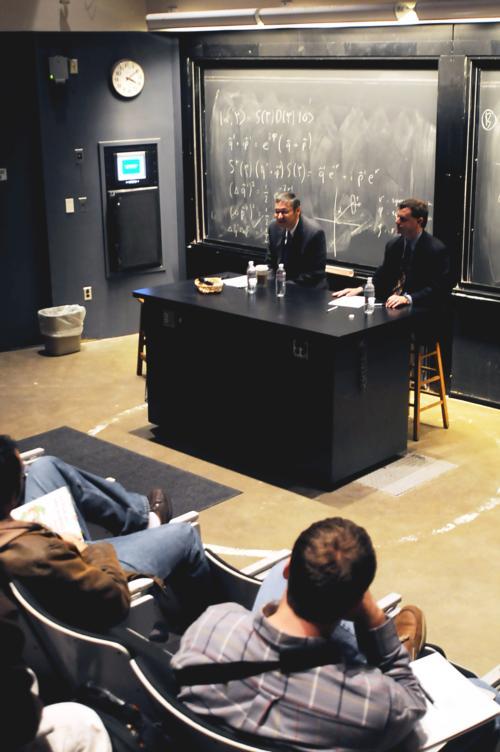
News
Summers Will Not Finish Semester of Teaching as Harvard Investigates Epstein Ties

News
Harvard College Students Report Favoring Divestment from Israel in HUA Survey

News
‘He Should Resign’: Harvard Undergrads Take Hard Line Against Summers Over Epstein Scandal

News
Harvard To Launch New Investigation Into Epstein’s Ties to Summers, Other University Affiliates

News
Harvard Students To Vote on Divestment From Israel in Inaugural HUA Election Survey
Professor Panel Focuses On Policy Similarities

With less than a week to go before the presidential election, politics is being conducted at a fevered pitch. But at a panel event yesterday, two Harvard economists—one from the political left and one from the right—instead focused on the common ground between the candidates, saying that the event was “not an occasion for political mud wrestling.”
N. Gregory Mankiw, who served as an economic adviser to President Bush, and David M. Cutler ’87, a health policy adviser to Democratic presidential hopeful Barack Obama, said that the two candidates agree on issues like energy and environmental policy.
“[They’re] far more similar to each other than they are to President Bush,” Mankiw said of the candidates’ approaches to energy policy.
Mankiw said that while he prefers the approach taken by Republican John McCain, both candidates support a cap-and-trade system to address global warming and that there are only “small differences” in their plans.
Cutler and Mankiw also agreed that the gasoline tax holiday—which McCain and Hillary Clinton supported but Obama opposed—was an ill-advised proposal. Cutler called it “terrible” and Mankiw called it a “crazy populist idea.” Mankiw said he gives Obama “a lot of credit” for resisting the call to suspend the gas tax.
Mankiw, who advised former Mass. Governor W. Mitt Romney in the Republican primary, said that he decided not to advise another candidate this election cycle because he “saw strengths and weaknesses in both candidates.”
While Mankiw said that he supports McCain’s economic policies over Obama’s overall, he had previously declined to sign an open letter saying that Obama’s “proposals run a high risk of throwing the economy into a deep recession.” In a post on his blog, Mankiw said that the language of the letter—which was signed by five Harvard economists—“was a tad too hyperbolic for my tastes.”
In addition to speaking about energy, Cutler also addressed education and health care, saying that reform is necessary in both areas.
“We certainly need more competition within the education system,” Cutler said.
He added that he doesn’t “know exactly what went wrong” with the federal No Child Left Behind Act, but that it’s “hugely important that we do something about it.”
Cutler added the United States wastes $700 billion on health care annually according to the best economic estimates. Part of the solution to problems with the American health care system, Cutler said, would be to invest more in preventative care.
Aside from the policy discussion, Mankiw also made two electoral prognostications during the panel.
“One thing I’m sure of is that Mitt Romney is not going to win on Tuesday,” Mankiw said. “Barack Obama is going to win, and I don’t think I’m going out on a limb on this.”
Want to keep up with breaking news? Subscribe to our email newsletter.
